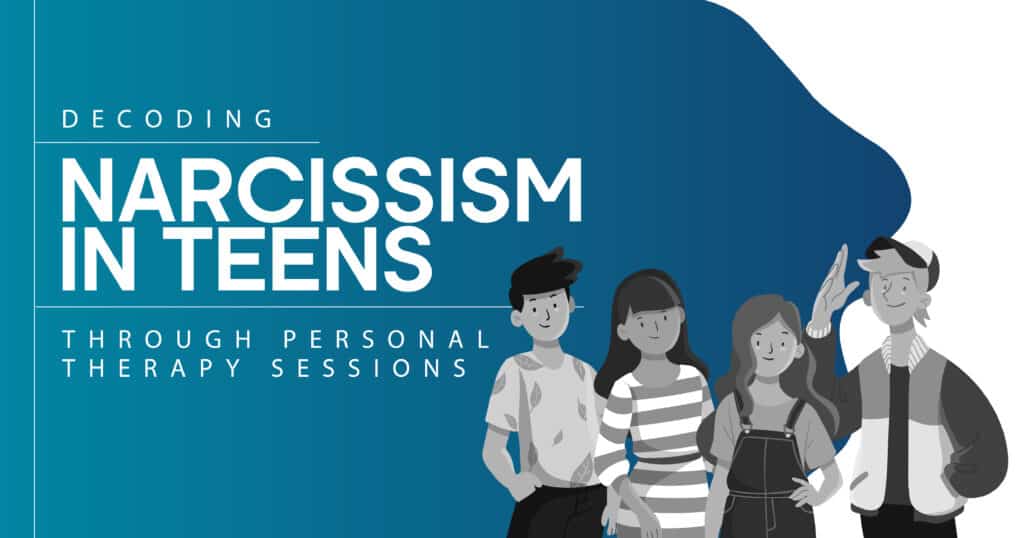Understanding the complexities of narcissistic personality disorder in teens is crucial for parents, educators, and mental health professionals alike. Adolescence is a formative period where self-perception, social dynamics, and emotional regulation develop rapidly. For some teens, however, struggles with ego, self-esteem, and self-absorption may signal deeper patterns associated with narcissistic tendencies. These traits can affect relationships, academic performance, and overall emotional health.
A narcissism test can serve as a helpful tool to evaluate these tendencies, offering insights that lead to more tailored interventions. Early identification, paired with personal therapy sessions, can empower teens to develop empathy, foster self-awareness, and mitigate the challenges of grandiosity and vanity.
Narcissistic Personality Disorder and Self-Esteem
Narcissistic personality disorder is not simply about self-confidence or pride; it involves a complex interplay between external self-presentation and internal vulnerabilities. Teens with NPD often display an inflated sense of self, yet beneath this exterior, they may experience profound insecurities. These insecurities can erode self-esteem, creating cycles of validation-seeking and overcompensation.
When a teen struggles with narcissistic personality disorder, they may overvalue praise and recognition while simultaneously fearing criticism or rejection. This hyper-focus on external validation often masks underlying feelings of inadequacy. Consequently, their ego can appear strong on the surface while hiding deep vulnerabilities that impact social interactions and emotional well-being.
Research indicates that adolescents with narcissistic traits are more likely to experience intense emotional swings tied to self-worth. For example, minor social slights or perceived failures can trigger feelings of shame or frustration, reinforcing the need for validation. Understanding this dynamic is essential for parents and mental health professionals seeking to support healthy self-perception.
Key Traits of Narcissistic Personality Disorder
Various psychological traits help construct the framework that regulates how individuals perceive themselves and interact with the world, here are a few discussed below:
Ego and Its Role in NPD
In teens with narcissistic personality disorder, the ego can become inflated, leading to exaggerated self-importance and an assumption of superiority over peers. This inflated self-image may manifest as boasting, dismissiveness toward others, or difficulty accepting constructive feedback.
An overdeveloped ego is not inherently negative, but when coupled with narcissistic tendencies, it may impair relationships and hinder emotional growth. Personal therapy sessions help teens recognize these patterns, allowing them to differentiate between healthy self-assurance and narcissistic preoccupation with superiority.
Self-Absorption vs. Healthy Self-Interest
A common misconception is that self-focus is inherently harmful. While excessive self-absorption can hinder empathy and personal growth, cultivating healthy self-interest is essential for emotional resilience. Healthy self-interest involves setting boundaries, prioritizing self-care, and acknowledging one’s needs without disregarding others.
| Feature | Self-Absorption | Healthy Self-Interest |
| Focus | Primarily on self-image and external validation | Balanced attention to personal needs and others’ well-being |
| Motivation | Driven by ego, fear of inadequacy, or need for attention | Driven by self-respect, emotional health, and goal-setting |
| Social Impact | May cause interpersonal tension or alienation | Strengthens relationships while maintaining personal boundaries |
A narcissism test can help teens and caregivers identify where behaviors fall on this spectrum, providing a foundation for intervention and self-growth. Psychology Today offers valuable articles on distinguishing self-absorption from constructive self-care, helping families navigate this distinction without confusion.
Grandiosity
An exaggerated sense of superiority, entitlement, and invulnerability characterizes grandiosity. In teens with narcissistic personality disorder, grandiose behaviors often mask underlying insecurities. A teen may insist on being the center of attention, claim exceptional abilities, or reject input from authority figures.
While occasional confidence is normal, persistent grandiosity can disrupt friendships and academic engagement. Personal therapy helps teens explore these patterns in a safe environment, fostering insight into the root causes of these behaviors. By understanding grandiosity, teens can learn to balance self-assurance with humility, improving social and emotional outcomes.
Vanity and Its Effects on Relationships
Vanity extends beyond appearance, encompassing an excessive focus on status, achievements, or social perception. Teens exhibiting vanity may constantly seek peer admiration or approval, impacting their ability to form authentic connections.
Teens learn to recognize how vanity may prevent genuine emotional engagement in therapeutic settings. By addressing these tendencies, they can cultivate meaningful relationships, develop emotional intelligence, and reduce reliance on external validation.

California Mental Health
The Role of Empathy in Managing Narcissistic Traits
Empathy is a cornerstone of emotional intelligence and plays a pivotal role in counteracting narcissistic tendencies. Developing the capacity to understand and share the feelings of others allows teens to build healthier relationships and strengthen self-awareness.
Practical strategies for fostering empathy include:
- Journaling about personal and others’ experiences.
- Engaging in perspective-taking exercises during therapy.
- Participating in community service or team-based activities.
Verywell Mind provides additional strategies for cultivating adolescent empathy, emphasizing real-world practice and consistent reflection. Therapy sessions at California Mental Health integrate these methods, guiding teens to recognize the impact of their actions on others while developing a more balanced self-view. Empathy becomes a tool for interpersonal connection, reducing internalized stress, and validating emotions in healthy ways.
Enhancing Self-Awareness and Seeking Help at California Mental Health
Developing self-awareness is essential for teens with narcissistic personality disorder. Self-awareness involves recognizing personal thoughts, emotions, and behaviors and understanding their impact on others. Individual therapy sessions offer a structured approach to reflect on tendencies like ego, self-absorption, grandiosity, and vanity.
Effective strategies include mindfulness exercises, guided journaling, and reflective discussions with trained therapists. These approaches help teens identify triggers for narcissistic behaviors, explore alternative responses, and develop healthier coping mechanisms.
At California Mental Health, personalized therapy programs cater to each teen’s unique needs. Our experienced team provides compassionate support, ensuring teens feel heard, understood, and guided through their journey toward emotional balance. Through targeted interventions, teens gain the tools to foster self-esteem, enhance self-awareness, and cultivate empathy, setting the stage for meaningful personal growth.
If you or your teen is struggling with narcissistic tendencies, don’t wait to seek help. Contact California Mental Health today to schedule a consultation and take the first step toward understanding, growth, and healing.

California Mental Health
FAQs
- How does narcissistic personality disorder influence self-esteem and ego?
NPD can create a paradoxical effect, where teens display an inflated ego while internally experiencing low self-esteem. They often seek external validation to compensate for underlying insecurities.
- What differentiates self-absorption from healthy self-interest in individuals with narcissistic traits?
Self-absorption focuses on constant self-importance and external admiration, whereas healthy self-interest involves setting boundaries and prioritizing well-being without neglecting others.
- How does grandiosity manifest in those with narcissistic personality disorder?
Grandiosity presents as exaggerated self-importance, entitlement, and a need to dominate social situations. Teens may reject guidance or insist on being the center of attention.
- In what ways does vanity affect interpersonal relationships for someone with narcissistic traits?
Vanity can lead teens to prioritize appearance, achievements, or status over authentic connections, creating distance and relationship misunderstandings.
- Why is empathy crucial in managing narcissistic personality disorder and enhancing self-awareness?
Empathy allows teens to recognize others’ feelings and perspectives, reducing self-focused behaviors and promoting healthier social interactions and self-awareness.







